LET THEM WAIT

Marko Alexandros Kagioglidis
Integriertes Design BA
bei Prof. Dr. Annette Geiger,
Prof. Asli Serbest
Experience Session On Self-Imposed Waiting
The Transnational Institute for Conservation and Cultivation of Waiting attempts to conserve a waiting culture that seems to vanish in neoliberal societies, as waiting spaces are increasingly filled with input, such as advertisement, consumerism and productivity. The cultivation of a healthy relationship between conscious waiting and how our society and economy works today is one of the main objectives of the ticc_w. To do this, the ticc_w created the Self-Imposed Waiting Experience Session.
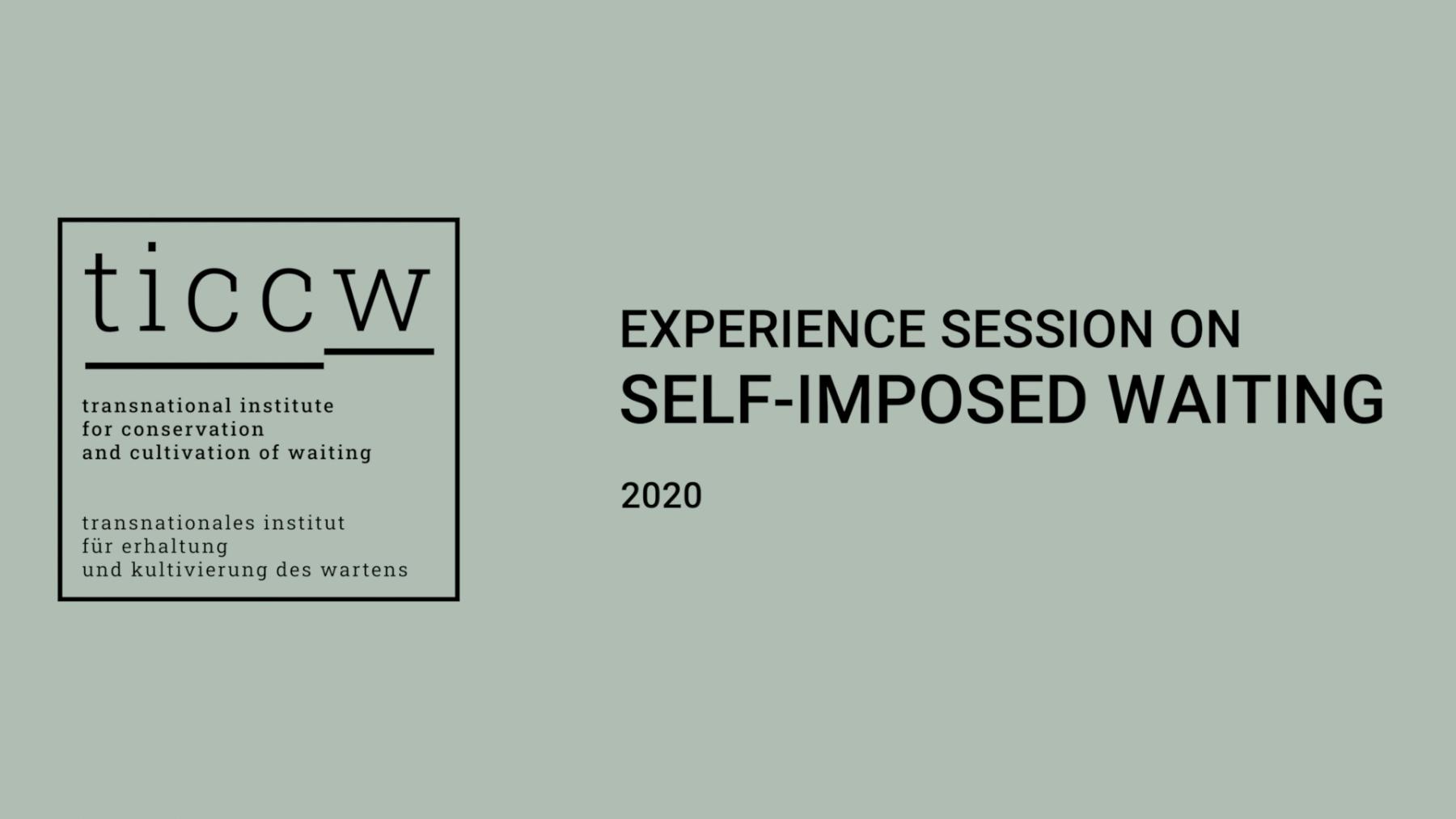
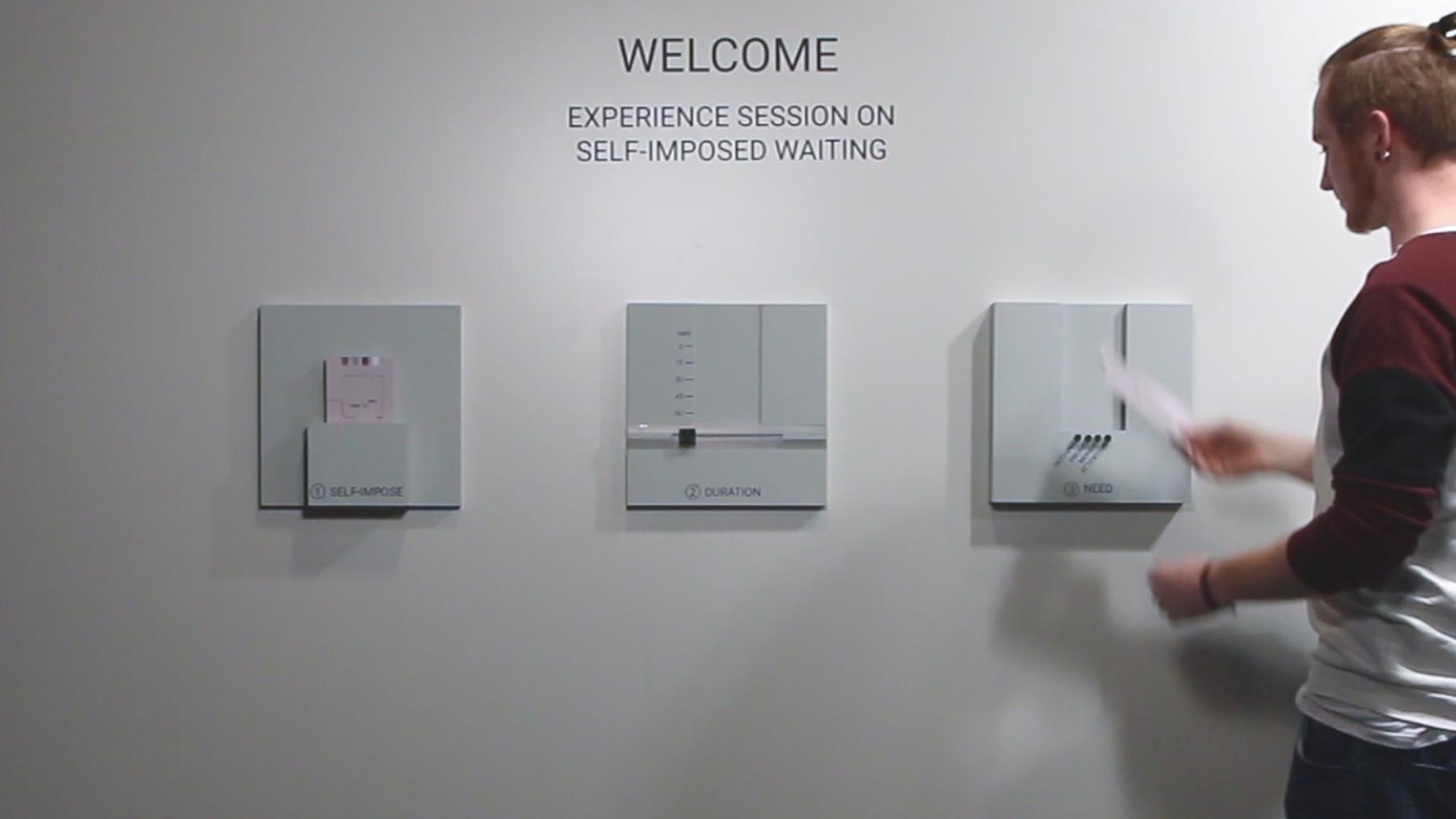
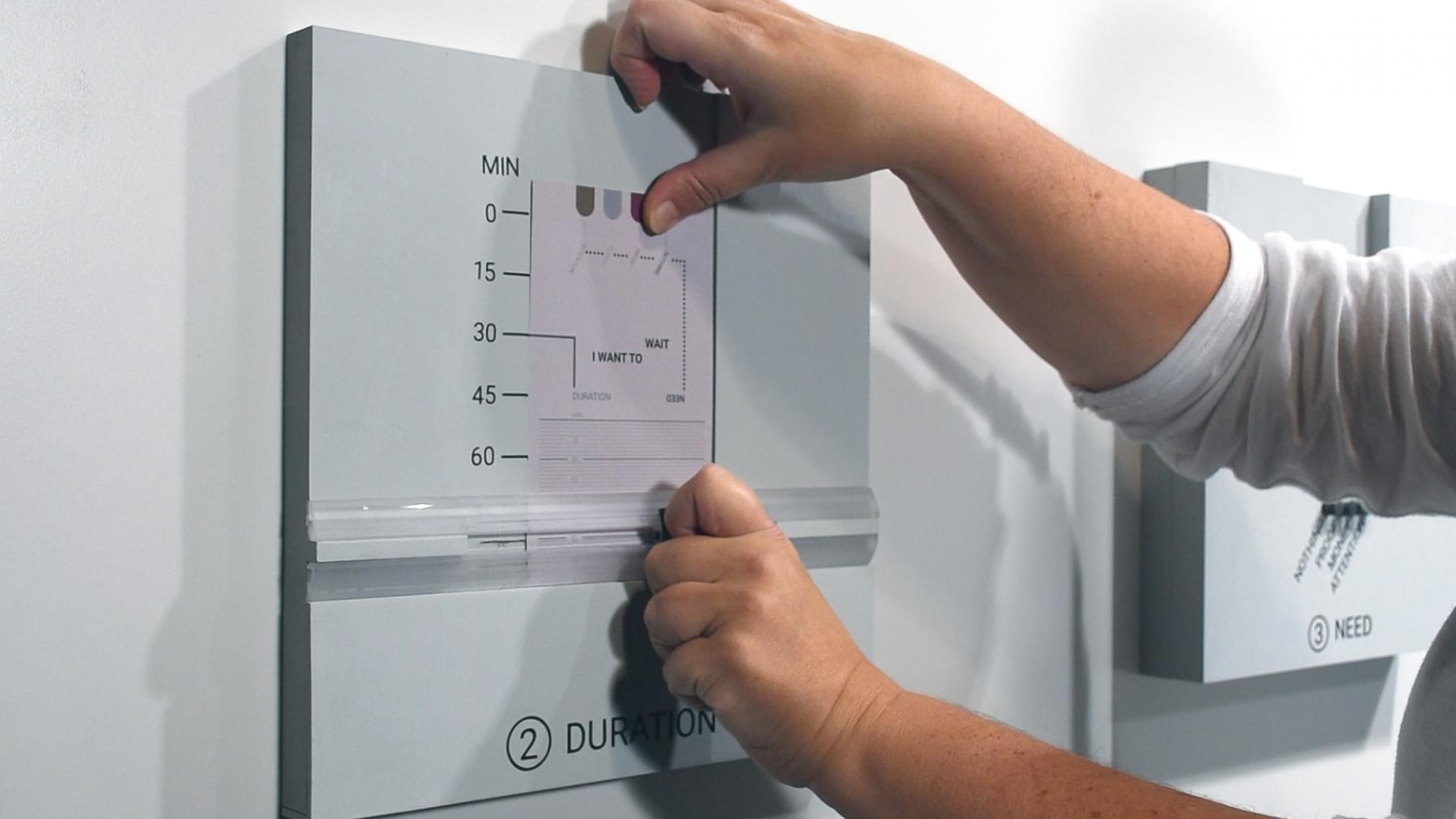
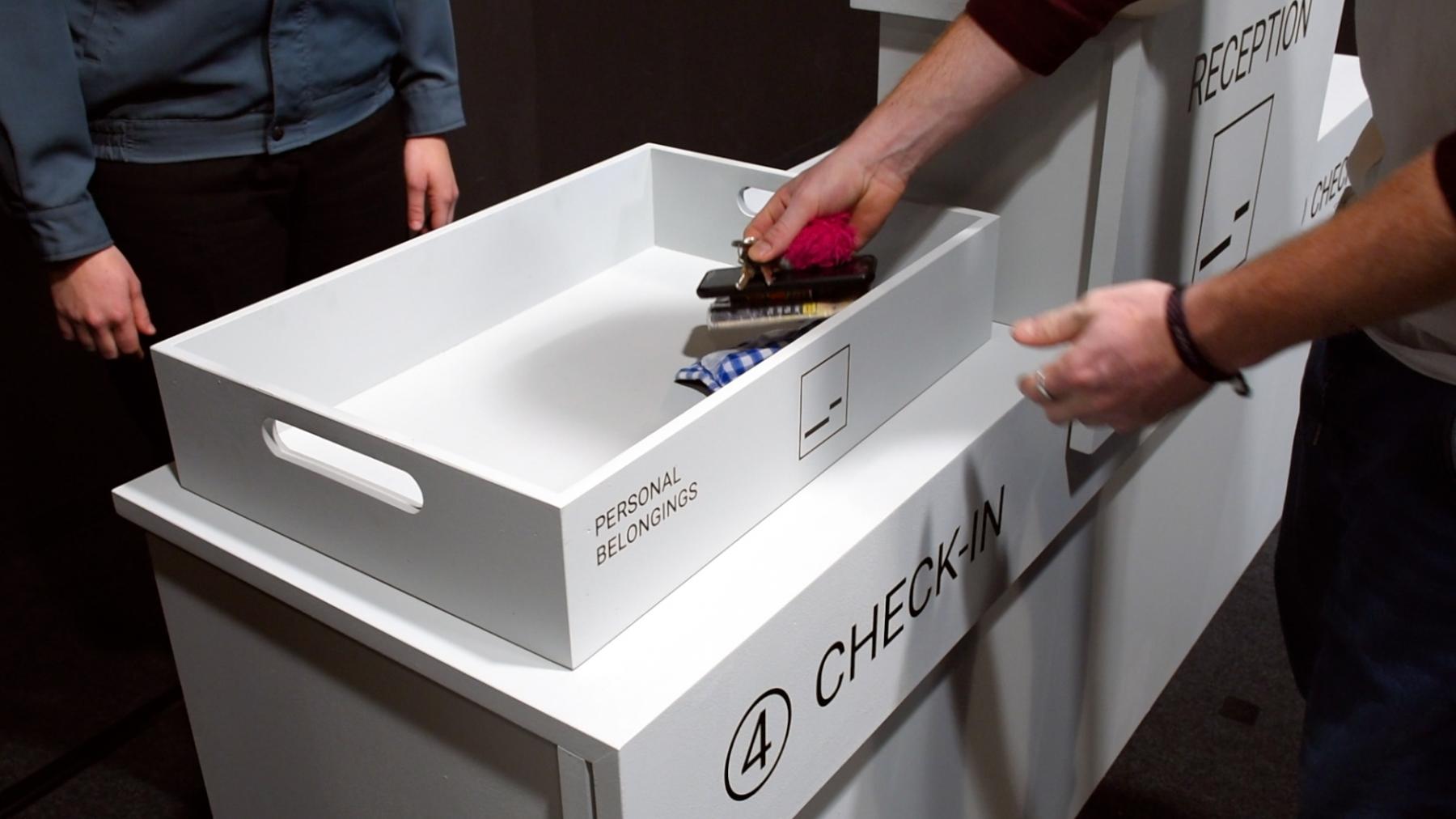

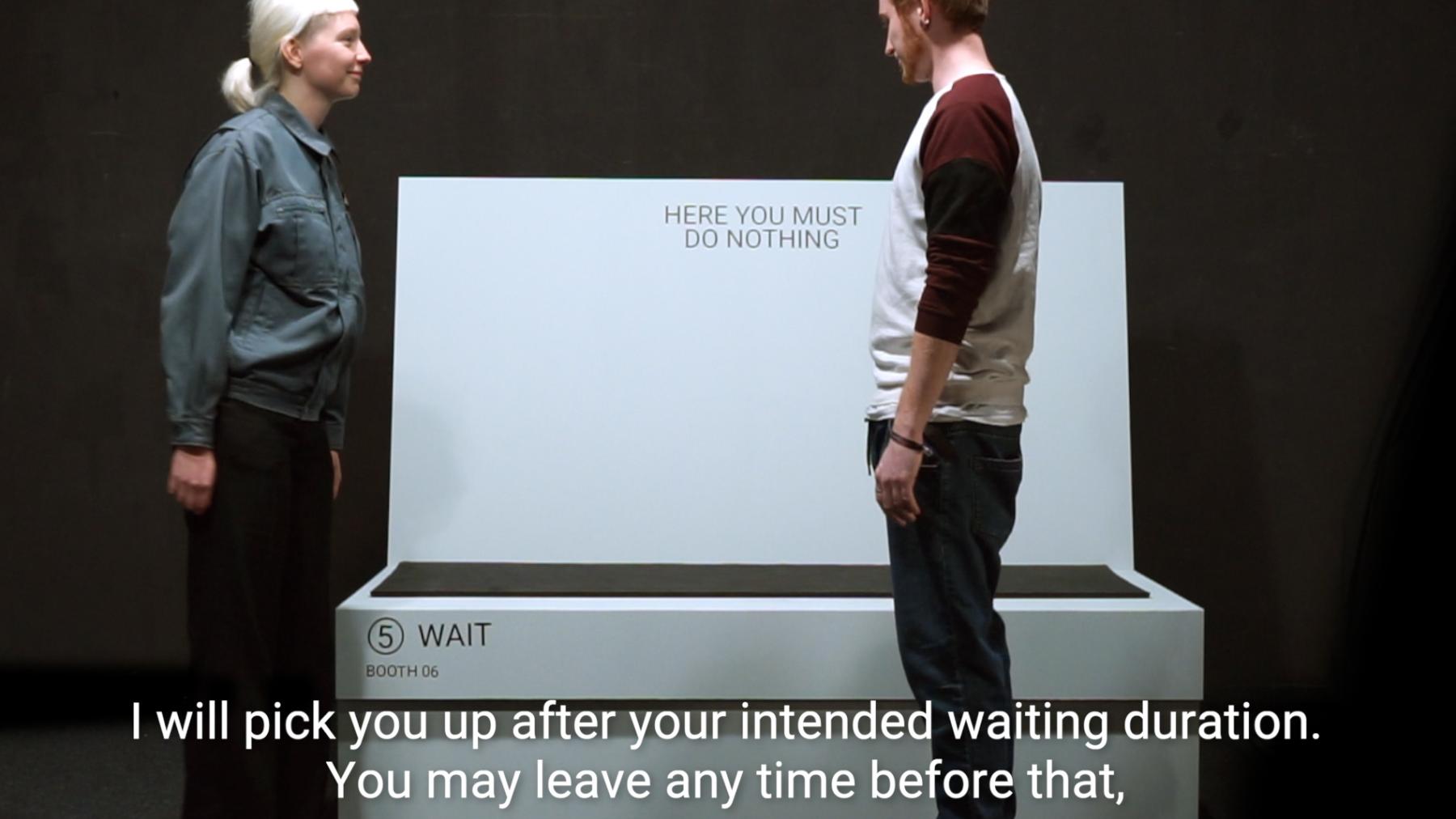

Waiting and perhaps restlessness has been a topic of discussion for a long time. Definitely since “Waiting for Godot” (Wilson, 1999). Waiting and related restlessness is not just an issue in arts, but an issue that shapes societies (Kölle & Peppel, 2019). E.g. the German society.
It might be reasonable to assume that an increase in restlessness originated in the protestant reformation, the rise of the late Calvinism and the following industrial revolution (Ullrich, 2020). The decrease of non-physical waiting spaces with the rise of personal and wearable electronics, non-stop connectivity and a blend of work and private are under suspect to this change in contemporary societies (Kölle & Peppel, 2019). Marko A. Kagioglidis investigates origins of restlessness and the urge to minimize waiting in western societies, from both a historical and a contemporary point of view. It discusses the negative stigmatisation of waiting even though “‘disconnecting’ from technology and providing the nervous system with a respite from outside stimulation might actually be conducive for mental health” (Wilson et al., 2014). Further, it investigates an emerging marginalisation of the working class through the reduction of waiting spaces and why waiting can be an unbearable activity on a psychological level.
This research project also looks into the trends of the way we wait and uses the method of a “Speculative Design” (Dunne & Raby 2013) approach to not just emphasise the significance of the need for waiting spaces but also to make it experienceable: A performance was created as an experiment. Participants were able to experience in a designed environment what self-imposed waiting feels like. Personal experiences can lead to discussions.
Raising the question if waiting is not seen as the “ugly side effect” can it then be used as a lens to highlight deficits and trends in societies. And hopefully, it can be used as a tool to shape tomorrow's societies.
The Transnational Institute for Conservation and Cultivation of Waiting (ticc_w) attempts to conserve a waiting culture that seems to vanish in neoliberal societies. The ticc_w was initiated on the basis that waiting spaces are increasingly filled with input, such as advertisement, consumerism and productivity.
The ticc_w tries to conserve the idea of waiting spaces which are not merely filled with input. The cultivation of a healthy relationship between conscious waiting and how our society and economy works today is one of the main objectives of the ticc_w. As waiting is something that concerns everyone the ticc_w constitutes itself as a transnational institute. The exploration of concepts to cultivate a conscious waiting culture in today’s systems is one key ambition. To do this, the ticc_w debuts in 2020 with an Experience Session on the concept of self-imposed waiting.
In this session, participants can experience self-imposed waiting. They can choose how long they intend to wait; between 1 and 60 minutes. And what they need to wait self-imposed; Nothing, a proof in the form of a paper receipt, money (the German hourly average net wage) or attention in the form of a social media post.
The Experience Session consists of six stages:
(1) SELF-IMPOSE:
Taking one Experience Session paper slip.
(2) DURATION:
Marking the intended duration on the paper slip by cutting it.
(3) NEED:
Marking one of the above-described NEEDS.
This is done by holepunching the paper slip.
(4) CHECK-IN:
Handing the paper slip to the Waiting Coordinator and depositing all personal belongings, distractions, electronic devices, timekeeping devices and shoes in a tray.
(5) WAIT:
The Waiting Coordinator brings the participant to their Waiting Booth. Here they wait self-imposed by themselves. They may abort the session early and leave any time before their intended time, in case they feel uncomfortable.
The Waiting Coordinator will pick them up after their intended waiting time.
(6) CHECK-OUT: The participants get their deposited items back and their Need paid-out.
↗ https://www.instagram.com/markokagioglidis/
Credits
Direction, Concept, Story, Script, Set and Post-Production: Marko Alexandros Kagioglidis, Waiting Coordinator: Josefine Kröll, Camera: Enly Gabriela Valdespino Prieto
Experience Sessions documented in four videos (~25 min each). Premier Exhibition (in Bremen, 12/2020) as a video installation with a conference on Self-Imposed Waiting hosted by the ticc_w.
Sources
Kölle, B., & Peppel, C. (2019). Die Kunst des Wartens (pp. 61). Berlin: Klaus Wagenbach Verlag.
Ullrich, R. (2020). Der religiöse Geist des Kapitalismus. Katapult-magazin.de. Retrieved 17 September 2020, from https://katapult-magazin.de/de... der-religioese-geist-des-kapitalismus/.
Wilson, R. (1999). How we waited for Godot. The Independent. Retrieved 3 October 2020, fromhttps://www.independ- ent.co.uk/arts-entertainment/how-we-waited-for-godot-1093429.html

